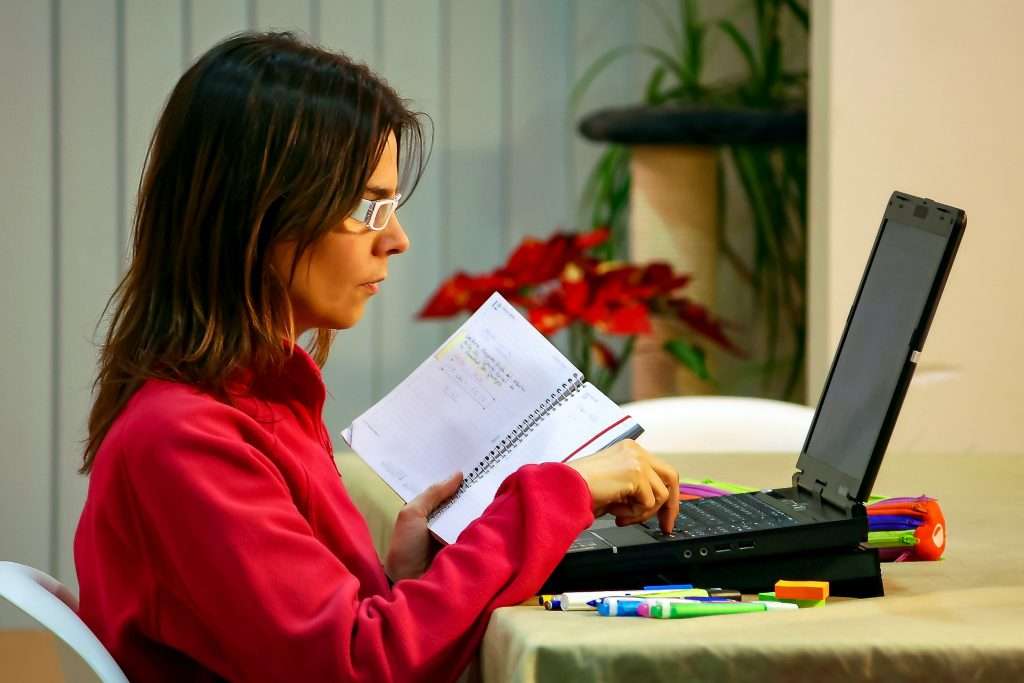First-Time Buyers
Second Time Buyer
Rental Investments
Commercial
Properties in Italy
Renting
Residence & Citizen Programmes
Foreign Buyers
Selling Your Property
Property Development




Being a landlord and letting your property in Malta can be a lucrative, long-term investment option and considerably help you to diversify your overall property investment portfolio. Buying a property to let out is a win-win situation as it means that you generate income while there is also the capital growth of the investment itself. This has made it a very popular savings and investment option as it gives far better returns than conventional savings, the latter which remain mostly dormant in one’s bank account. It is important to keep in mind that rental properties are in real terms income-generating “businesses” in their own right, whether they cater to the short or long-term rentals markets and thus need to be properly managed like any other business in order to be successful. Our guide will provide you with essential tips and information on how to become successful and explain all your responsibilities as a landlord. This will include on how to prepare your property for show to tenants and also cover the legal requirements. Always keep in mind that like any other investment, becoming a prosperous landlord requires proper planning and management in order to succeed. We will also discuss the benefits of appointing a letting agent to be part of your rentals team, freeing you up to pursue further financial success in the world of real estate. If you want more tips on investing in rental property, click here.
The answer on this one is absolutely “Yes!” If you can afford to buy a property to rent out at a young age, this will be a great start on your way to financial freedom.
The secret is to educate yourself about Malta’s property rentals market with the assistance of a good real estate agent. Property in Malta has consistently outperformed any other kind of long-term investment the world over and real estate is part of many an independently wealthy investor’s portfolio of investments. If you ask any one of them, they will always say: “I wish I did it sooner”. It is a known fact that the longer you own a property, the better an investment they become. The reason for this? Building costs always go up, so the longer you delay buying a property, the more you will pay.
Any age, but the best time to buy your first rental property is when you are young and single, before you have added costs in the way of other commitments. Having your first rental property that is profitable will in fact make things easier for the rest of your life given it has been a wise and sound investment.
Just remember, the amount you have bought the property for will always remain the same given you have bought it cash or if you have a bond on the property, given that you pay the interest amount each month. The rest of the money you make from the rent will be in your pocket to save and set aside towards buying your next property! A great idea is to not spend the money you save, but to pay off the bond first sooner and that way you will have less liabilities and even more cash in hand to do the same all over again when the property has been paid in full. This way you will set a precedent for the future and lay the foundation stone to absolute financial freedom. Our top tips on rental investment can be accessed here.
The plus points of older properties are that they usually have higher ceilings, thicker walls, and may even include additional space such as a scullery or pantry that can be converted into an extra room such as a small study or baby’s room. The downside of older properties is that they require more maintenance, are not well insulated, show wear and tear and may need extensive renovation and updating. New properties on the other hand will, if well-constructed, be fuss- and maintenance free for years to come, will usually be modern in design with open-plan features and be guaranteed for some years after construction. Modern builds may be a bit generic in character but will be easy to personalise with fittings and finishes of your choice. Read more about the most popular areas to buy investment properties here.
If you see more than the acceptable amount of properties in the area vacant, take this as a warning. If they are standing empty, it’s likely yours will too and avoid buying close by. Also see what kind of people live in the area, the types of shops that feature and what the noise levels are like. Visit the property at different times of the day to assess the overall character of the surrounding neighbourhood, as it will not be the same all the time. Speak to any neighbours you can find and ask them what the positives and negatives are of living in the area and if they would recommend it to anyone. Have a look at buying the right investment property here.
It’s tempting to go for higher rentals than the area average, but don’t do this as you will sit with the property for longer and this will lead to you losing money. Ask your Frank Salt Area Specialist about pricing that is competitive and sensible so you get a tenant sooner than later.
Families have a reputation that they are more reliable, that they pay on time and look after properties. Families are also more restrained as they have far more to lose if they get asked to vacate a property due to for instance unruly behaviour. They tend to rent for longer periods of time when compared to singles and are easier to do background checks on. This is due to the fact that they are more likely to already have an existing credit ratings history with companies such as banks and retailers.

An appealing, clean property that is correctly priced for rent will stand an excellent chance of being rented out immediately. If you are a landlord, there’s a few things however to pay attention before exposing a rental property to the market and if you maintain a property regularly by fixing any issues as they occur, it will save you time between tenant changes as you will have less to repair or replace in one go. If you also ensure that you get a good quality tenant, it is more likely that they will look after the property as if it was their own. We look at how to increase your chances as a landlord of successfully renting your property by taking care of some important points:
Make sure the property is spotless and remove any of the previous tenant’s personal belongings that may have been left behind. New tenants do not want to see reminders of previous tenants as this will leave an impression that you as a landlord don’t care a lot about the state of the property and therefore will not care about them. As a landlord, it is important that your rental property is in a neutral but tasteful and stylish state when you show it to prospective tenants.
Always, always keep one thing in mind as a landlord: M-I-N-I-M-A-L. Less is more in this case, so never be tempted to add overruns you may have bought to your rental properties, no matter what it is. Also never, ever use properties you rent out as informal “storage” facilities for old furniture or heirlooms, hoping that no-one will see. If you do, expect tenants to be few and far between or not willing to pay what you are asking.
Tenants want a neutral, uncluttered property where they can imagine themselves living one day. Once they have moved in, they will add their own touches…so you never have to!
Any painted surfaces that needs touching up needs to be refreshed before you show off the property. This will create a feeling of care and maintenance from the landlord and it is one of the easiest and cheapest ways to revive a property. Nothing is more off-putting than cracked, stained or peeling paint or having mould on painted surfaces in bathrooms and kitchens. The smell of fresh paint is also a bonus as it shows that you believe in maintenance and investing in the caretaking of your property and therefore will also care about the tenants.
The property needs to be in a very good state for habitation and adhere to all the safety regulations. In the long run, on-going property maintenance will save you money and hassles, ensuring a shorter turnaround time once a tenancy comes to an end.
Do not ever try and hide anything that is cracked, broken, has holes from cigarette burns or something that has dents or leaks. Have cracked windows or doors that have holes in them replaced and have new carpets installed if they cannot be mended or cleaned up to look as good as new. Have soft furnishings professionally steam cleaned, buy new linen and towels. This also applies to mattresses especially. If you have curtains or blinds, make sure they are dust-free and smell fresh. One of the most often forgotten items are ceiling fans: make sure the blades are clean and dust-free and that it works. Have AC’s regularly serviced to ensure optimal performance and a long life of efficient service.
Upgrades are not to be confused with repairs! If you’ve had a good run and were wise enough to set some of your rental income from a specific property aside for the future, think of periodically upgrading the property to keep up with the latest design trends, preferences, technology and appliances. Having your property equipped with the latest contemporary furniture and appliances and looking like the real deal will also aid in getting tenants faster and this will also get you better rental rates.
Do not use your rental property as a dumping ground for old and unloved personal furniture items or as a storage facility. Your tenants will pick this up and besides, why should they pay rent for a cluttered property that is full of out-dated furniture that they do not relate to? Also stay away from using personal favourites when it comes to colours, patterns, tiles and carpets. Use neutral shades of colour from the same colour family such as light greys, creams and whites. The same goes for upholstery, soft furnishings and carpets. Your tenants need to see a blank, neutral canvas and envisage what they can do to make the space their own.
Ensure that your property is totally spotless and smells fresh before you show it to new tenants. Glass needs to shine, all surfaces needs to be immaculate such as countertops, cookers, hoods, baths and basins, floors and walls. If you have wall-to-wall carpets in certain areas, inspect it for any stains or marks and especially smells! If you can’t get it clean yourself, hire a professional to do it. It will be money well spent.
Tenants do not want to feel they have the responsibility of looking after your plants. If you have to have anything green, make sure to choose water-wise, hardy indigenous plants that require minimal caretaking. Always ask tenants if they want the plants as part of the lease or if you should remove them.
Balconies and terraces need to be clean and spotless. Remove anything unsightly especially dead plants, old unwanted furniture and try not to have bins and refuse bags on your balconies and terraces.
If you are renting out the property as furnished, make sure everything is in good condition. Furniture should be comfortable and practical and all electrical equipment must be working. Choose furniture that can be easily mixed and matched and are of good quality and design. Invest in some timeless classics as not only will they last longer, they will look fantastic for a long time, lessening the need for replacement.

Legal compliance is of the utmost importance if you are going to be a successful and respected landlord in Malta. Any residential rental contract MUST BE REGISTERED!
A legally recognised tenancy agreement (that can be downloaded from the Housing Authority website at https://rentregistration.mt/forms/ or it will be supplied by your rental agent) needs to be completed by the landlord and the tenant. This will outline the conditions and terms of the agreement and will include for instance the rental amount, the duration of the tenancy and any other conditions as agreed upon. This must be signed by both the landlord and the tenant and needs to be registered within ten days with the Housing Authority by the landlord. Should the landlord fail to register the contract with the Housing Authority, it could lead to the landlord being fined. Continued resistance by the landlord to complete the registration of the contract can lead to being issued with multiple fines. It is important to note that the tenant or lessee will be completely acting within their rights should they take it upon themselves to register the contract where there is failure on the side of the landlord/lessor to do so.
If you are going to rent out a property and thus become a landlord or you may be thinking of renting a property and becoming a tenant, you will always have to deal with signing a contract! We will be discussing several aspects of the sometimes very confusing rental contracts themselves, the meanings of stipulations and your obligations and rights whether you are a landlord or a tenant.
First let’s look at precisely which contracts are referred to when we talk about Malta’s rental laws and regulations:
Rental contracts that are not covered by the new reforms are:
In Malta any rental offered for longer than a six month period (usually starting with one year) is considered as falling under one of the “long-term” categories and in this case there are several conditions that any landlord or tenant must take into consideration. We look at some of the stipulations as laid down by the law that affects both landlords and tenants:
Rental contracts are there for a reason: to protect BOTH the landlord and the tenant and if all parties are happy to sign it, they also have the obligation to honour everything that is contained within it.

You need a permit for every property before you can let it. This is applied for through the Housing Authority and you will need to provide proof of ownership, proof of insurance and proof that the property adheres to all safety regulations as required by law. You can download the PDF form here.
Before you will be allowed to let out a property, you will need to obtain an Energy Performance Certificate. This rates the energy efficiency of the property and needs to be available for tenants to inspect. Want to know more? Visit the EPC website here.
The property needs to be equipped with working smoke and carbon monoxide detectors, a fire extinguisher and everything else that is required by law. Tenant’s safety is paramount.
Landlords in Malta are required to issue receipts for any money paid by a tenant. This includes all deposits, key money, advances and monthly rental amounts. Each receipt needs to state the date, the amount, what it is for and also the address of the property and the name of the landlord.
You will have to make sure that you are following the rules and regulations and adhere to the law that pertains to data protection when you are collection information about anyone. If you want to know more about data protection in Malta, visit https://idpc.org.mt/
Depending on what you are planning to do on the premises during your visit, you have to give your tenant no less than 24 hours’ notice before arriving.
When your tenant vacates the property at the end of the contract, you have to return their security deposit within 30 days. You can deduct money for damages or unpaid rent but will have to supply proof for this.
There are legal procedures to follow when you end a tenancy. It includes providing the tenant with the notice in writing and remember that there are different timeframes for giving notice for different lengths of rentals. You also have to abide by any stipulations mentioned in the rental agreement.
The days of evicting a tenant on the spot that as not paid rent or one that has broken all the rules of the agreement is no more. A landlord is also not allowed to change the keys or to have the water or electricity disconnected while the tenant in question still lives there. In order to evict a rogue tenant, the landlord will have to get a court order and follow the legal processes involved.

As a landlord, you will be required to pay taxes on any income made from rentals. We take a look at some of the most important questions asked regarding the subject:
The rental income tax rate of 15% applies both to residential (as from 1st January 2014) and commercial property (as from 1st January 2016). This however excludes rent from related parties.
When it comes to the 15% flat rate, is it a final tax and on which amount is it paid?
Correct, the 15% flat rate is final and no set-off or refund applies. This 15% tax rate is to be paid on the gross rental income.
When it comes to non-residents, does this rate also apply to them?
Correct, the beneficial rate applies both to non-resident and resident persons.
Is this rate applicable to companies as well? If so, where is such income to be allocated?
Yes, the rate also applies to companies. Every Malta resident of a company must allocate distributable profits forthcoming from such income and on which 15% tax has been paid to the final tax account.
5. Do I have to declare this rental income in my tax return if I exercise this option?
If you pay the 15% tax on the gross rental income, the answer is NO. You are therefore not required to declare such income (given that you are an individual) in your tax return.
Is the 15% required or voluntary?
The 15% is not mandatory. Individuals have the choice to report their net rental income on their tax return and pay the regular tax rates instead of the 15% flat rate. It’s important to note that once this option is selected, it applies to all rental income received during that year from all eligible properties.
What are the dates for which this rate applies?
From 1 January 2014 for residential property and from 1 January 2016 for commercial property.
If during past years I failed to declare rental income derived from residential properties or a garage, will I still benefit from the 15% tax rate on this past undeclared rental income?
Unfortunately not. The option to benefit from that rate was allowed only up to 30 June 2015 where after such undeclared income has now to be declared and this is now subject to tax under the normal progressive rates.
An AF2 has to be submitted and tax is charged at 35% if a company received rental income in past years which was not declared for tax purposes.
To pay the 15% tax on rental income, you must submit Form TA24 along with your payment no later than April 30th of the year following the relevant tax year.
If rental income is not declared, regardless of whether the 15% flat rate option is chosen or not, it will be subject to a 35% tax rate on the gross rental income. Additionally, the individual will be required to pay interest and any additional tax due under the Income Tax Acts following an investigation by the tax authorities.
The 15% rental income tax rate is a final tax and cannot be refunded.
The decision to use the 15% rental income tax rate is made annually. Therefore, an individual may choose to use the 15% rate one year and switch back to the normal tax rates the following year.
Always consult with a professional to make sure you are paying the correct amount of taxes, as new legislation is introduced from time to time and this will affect what you pay.
For this discussion it is taken that the apartment that you are renting out is neat, clean and in good shape, fit for the duration of the tenant’s stay. This does not mean that the tenant should be discouraged to apply their personal touch to make it feel more like home: we have some useful tips for tenants that will go a long way ensuring that your tenant will stand a good chance of getting their full deposit back, by simply looking after your property.
As the landlord you must explain your acceptance of normal wear and tear of things in your property. This is a simple fact of life by people staying there and for this you cannot hold back part of the deposit at the end of the tenancy. This can include for instance door handles and hinges getting worn out, carpets getting threadbare in heavy traffic areas, faded curtains, minor scuffs and scrapes on walls and worn keys.
Tenants need to feel that the space is their home, so advise them to only use picture hooks that are already there otherwise get some removable picture hooks or strips that are guaranteed no to leave any marks when you remove them.
Ask tenants to try their best not to eat or drink when sitting on your fabric covered chairs and couches of your rental property, as accidents happen all the time. If anything unforseen happens, have it professionally cleaned and inform the tenant that they will be footing the bill or it will be deducted from the deposit.
Unless you are OK with tenants smoking inside, ask them to do so outside. This will ensure your rental smells fresh for longer and also prevent the walls from getting stained by the lingering smoke that hangs in the air or that carpets and other soft furnishings absorb the smell. If you do not want any smoking in the property, inform your prospective tenants of this before they sign on the dotted line.
Always ask your tenants to immediately report anything that breaks, leaks or need repairs and instruct them to never try and fix anything themselves unless it is crucial, as that is your responsibility. You can however ask them to turn off water mains immediately in case of a leak, as it may prevent consecutive damage to other items in the property or to that of neighbours.
Ask your tenants in a nice way to try and keep the property in tip-top shape like the day they moved in. Normal wear and tear is of course acceptable over time and for this they will not be penalised when they move out.
Inform your tenants that you will be making routine on-site inspections, and that this will be an opportune time to point out anything that they may be concerned about. Always inform your tenants at least 24 hours in advance of your visit.
You are not allowed to refuse tenants to have pets any longer but ask them to see to it that they do not misbehave in any way.
If your tenant wants to repaint a wall or room colour, inform them that they will be asked to return it to its previous state otherwise money will be deducted from their deposit to cover costs that you, the landlord will incur in order to do so.
Also ask your tenants to never alter, install or change anything in the setup or structural layout of the property such as adding a dry wall or partition, install shelving or similar without getting written permission from you to do so. Also inform them that they cannot expect compensation for this even if you have given your written consent for them to do so. The best is to leave things as they are from the day they move in to the day they move out.
The general rule of thumb between landlords and tenants (even if they are only prospective tenants) is good communication. Allow new tenants to point out things that they have concerns about and allow them to ask questions. As a landlord, make clear what your rules and expectations are of any new tenant. There is nothing better than a wonderful landlord and a dream tenant.

Some additional and important points that are at the core of every successful landlord’s modus operandi are:
Conduct regular inspections of the property and attend to any issue that is brought to your attention. Besides seeing that the property is well looked after by the tenants, it needs to be in a fit and proper state for habitation at all times.
A list must be made of everything that is in the property and will form part of the tenancy agreement, before the tenant moves in. It will list all furniture, appliances and more and will resolve any disputes at the end of the tenancy when the deposit needs to be returned to the tenant. This inventory needs to be agreed upon and signed by both parties as 100% accurate.
If you are in the fortunate position and lucky enough to have a dream tenant, that tenant’s retention should be at the top of your list and you need to look after them. This will ensure that your property does not stand empty at the end of any tenancy period, as your dream tenant will be more likely to stay and extend the agreement.
Regular communication with tenants will ensure that you have a good relationship with them for the duration of the tenancy. This way they are also more likely to take care of your property.
If you have properties to let out in Malta, you may have been handling the process yourself up to now. This means collecting the rent, registering the properties with the housing authority, seeing to problems and fixing issues that crop up and paying the bills on time. It also includes finding the right tenants, filling in the formal contracts with tenants and registering them…it all requires a lot of admin and a lot of your time! We advise considering the appointment a professional letting agent to do all of this for you. We look at some of the benefits when you appoint a letting agent to do all the work for you:
Unless you are a full-time landlord and letting out properties is your only business, delegating all the responsibilities and appointing a letting agent to handle it on your behalf for a realistic fee, makes complete sense. Free yourself up and have more time to achieve your other investment goals!
Letting property in Malta can be very profitable as long as you have done all the necessary research and prepared yourself well. Additional measures to make your life easier can include appointing a good letting agent and it is always advised that you have full knowledge of all the legal requirements when letting a property. This all will go a long way in ensuring a problem-free tenancy. It is also extremely important to keep all lines of communication open between yourself and your tenants and to maintain the property at all times.
Frank Salt Real Estate has more than 50 years of experience in the local rentals market, assisting landlords in finding the best tenants possible. No matter where you are in the country, Frank Salt Real Estate covers the whole of Malta and Gozo. We know the market and we have the properties, whether you want to buy for investment or are looking to rent. We also supply experienced or new-to-the-market landlords with pre-qualified tenants. In addition, the company has a dedicated team of professionals who handle all aspects of property management on behalf of landlords. We ensure everything is taken care of and that both the owners and tenants of properties have long and trouble-free relationships, from moving in to the very end of the tenancy agreement.
Disclaimer: The information contained in this website is for general information purposes only. While we endeavour to keep the information up to date and correct, we make no representations or warranties of any kind, about the accuracy, reliability or availability with respect to the website or the information, products, or services contained on the website for any purpose.
 ×
×
We have sent email to [email protected] to confirm the validity of your email address.

